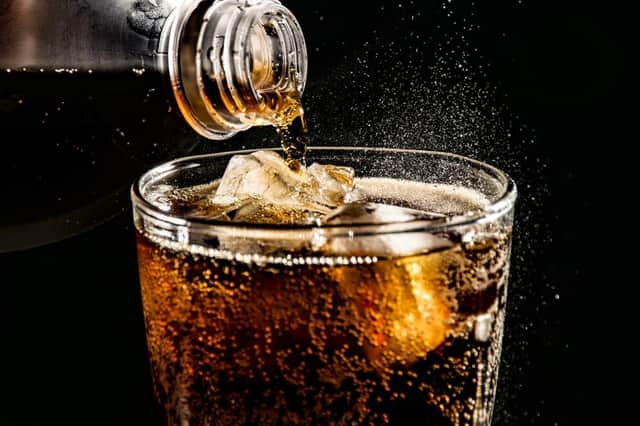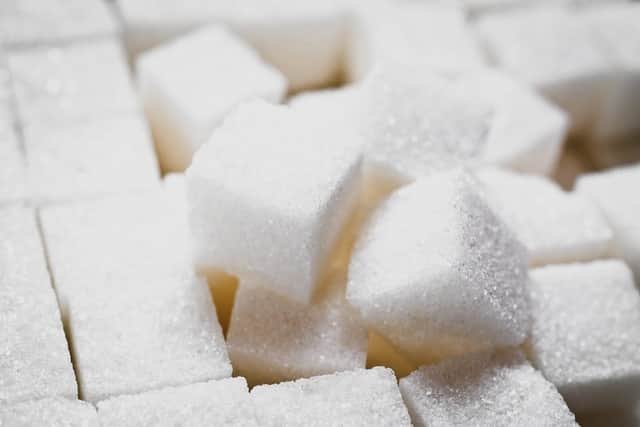Sugar tax on soft drinks 'might boost boozing'


The new 'Sugar Tax' on soft drinks could trigger an unwanted health effect by boosting boozing, suggests a new study.
An industry levy is due to be imposed on soft drinks with a high sugar content in Britain from April in a bid to curb rising levels of obesity and diabetes.
Advertisement
Hide AdAdvertisement
Hide AdBut new research, published online in the Journal of Epidemiology and Community Health, warns that a sugar tax levied on soft drinks might have the unintended consequence of driving up alcohol consumption.


The researchers said that as many alcoholic drinks contain similar or greater amounts of sugar - 43 kcals/100 ml for beer; 85 kcals for wine; 40 kcals for cola - and have other well known harms, a more "nuanced approach" across a range of drinks may be more effective than a single tax on sugary drink.
As well as Britain, several countries - including France, Belgium, Hungary, Finland, Portugal, Mexico, Chile, Thailand, Saudi Arabia and the UAE - have already gone down the sugar tax route.
Financial modelling studies have shown that increasing the price of sugary drinks could make a small but significant dent in purchasing patterns, particularly among poorer households.
Advertisement
Hide AdAdvertisement
Hide AdBut little is known about the potential impact of such a hike on alcohol sales.


Sugar stats
To work out any impact on sales, the researchers applied a specialised tool for studying consumer demand to data on household expenditure on food and drink in 2012 and 2013 from a nationally representative sample of around 32,000 UK homes.
The data provided complete details of each sales transaction, in addition to social and demographic information for each household.
Full data for both years were provided by 31,919 households, adding up to some six million drinks purchases, grouped into high (8g+/100 ml), medium (5-8g), and low (under 5g) sugar content drinks; fruit juices; milk-based drinks; water; beer; lager; cider; wines; and spirits.
Advertisement
Hide AdAdvertisement
Hide AdLow income households spent nearly half (48 per cent) of their total drinks expenditure on all three 'strengths' of sugar sweetened drinks, compared with 44 per cent for medium income, and 39 per cent for high income households.
The trend went in the opposite direction for juice drinks.
The findings showed that alcohol purchase was "more sensitive" to price change than soft drinks.
But increases in the price of sugary drinks were associated with different purchasing patterns for other beverages, depending on sugar content and household income.
When the price of high sugar content drinks rose, so too did sales of diet drinks, juices, and lager. But purchases of medium sugar content drinks and spirits fell.
Advertisement
Hide AdAdvertisement
Hide AdPrice rises in medium sugar content drinks were associated with falls in beer, lager, and wine buys, while price rises in diet/low sugar drinks were associated with increases in all other types of drink, except high and low sugar content ones.
In high income households, price hikes in high sugar content drinks were associated with a fall in sales of cider, while in the middle income group, these hikes were associated with a fall in the purchase of spirits, but an increase in those of lager.
No declines in alcohol purchases were evident in low income households.
Medium measures
A price hike for medium sugar content drinks would seem to be most effective, while applying one to diet/low sugar drinks would seem to be the least effective, according to the findings.
Advertisement
Hide AdAdvertisement
Hide AdResearchers said their findings indicate that the threshold of sugar content for any price rise could be crucial.
And they suggested that price rises may have a greater impact on reducing alcohol consumption than that of soft drinks.
Study lead author Professor Richard Smith, of London School of Hygiene and Tropical Medicine, said: "Although this analysis can highlight significant relationships between beverages purchased, it cannot explain why these relationships arise.
"This mixed picture indicates the complexity of estimating the impact of a single price increase."
Advertisement
Hide AdAdvertisement
Hide AdHe added: "Increasing the price of [sugar sweetened beverages] has the potential to both increase and decrease the purchase of alcohol, suggesting more nuanced price options across a range of beverages may be more effective than a single tax on high-sugar ones."